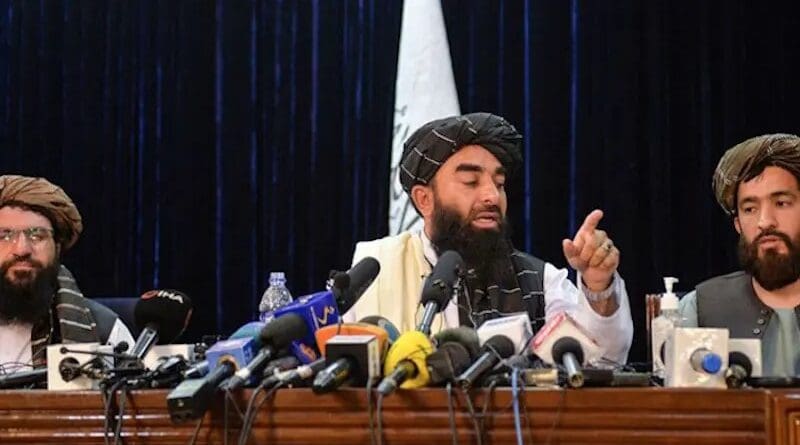Biden’s Fight Against The Taliban Shifts To The UN – OpEd
By Arab News
By Luke Coffey*
As the Biden administration deals with the fallout in Afghanistan there is no shortage of challenges. Two, in particular, stand out for the White House. One is a diplomatic challenge and the other a security challenge. Both require a level of sophistication in international affairs so far shown to be lacking in this administration.
The diplomatic challenge occurs next week when the UN General Assembly holds its annual gathering in New York. During this time, every member state will get their chance at the podium to address the world.
It remains to be seen what will happen with Afghanistan at the UN next week. The current Afghan representative is a hold-over from the previous Ghani government. For this to change, the UN would have to accept the credentials of the de facto Taliban government in Kabul. Some UN members are eager to recognize the Taliban as the legitimate government of Afghanistan, but most are unwilling to do so at this time.
Recognition by the UN would mean the Taliban inheriting Afghanistan’s existing membership in other UN bodies, including the UN Educational, Scientific and Cultural Organization and the UN Commission on the Status of Women. Considering the Taliban’s track record of destroying UNESCO cultural sites such as the two Buddhas of Bamiyan, as well as its well-established record of mistreating women and girls, the idea that the militants should be in either organization is preposterous.
Another point to consider is that at least 13 members of the Taliban’s so-called caretaker government are under some sort of UN sanctions. For this point alone, it would be ridiculous for the UN to recognize the Taliban as the legitimate government of Afghanistan.
In addition to the administration’s diplomatic challenge at the UN, it must also deal with the potential terror risk in Afghanistan. One proposal that President Joe Biden has touted is the idea of an “over the horizon” force to strike terrorist threats in Afghanistan as they emerge. While the idea might sound good, there are three practical obstacles that must be considered.
First are the geographical and geopolitical obstacles. A quick glance at the map shows that there is no good way for the US to access Afghanistan from the air. Afghanistan borders six countries. Obviously, accessing Afghanistan using Chinese or Iranian airspace is not an option for the US. While the US has used Pakistani airspace in the past to enter Afghanistan, this was never a reliable option.
Due to Ashgabat’s “permanent neutrality,” Turkmenistan is not an option. Uzbekistan is keen to maintain cordial relations with the Taliban and would be unlikely to provoke them by giving US transit rights for strike missions. Tajikistan has been the most critical of the Taliban, but for the US to enter Tajik airspace it has to fly through Uzbekistan or Kyrgyzstan first. The latter has been lukewarm at best toward US policy in the region since the closure of the American air base outside Bishkek in 2014.
Finally, there is the situation of not having “eyes on the objective.” Without the US presence on the ground in Afghanistan, trying to determine who and where to strike will not be easy. Relying on the Taliban to provide intelligence should not be considered a suitable option. One need only look at the tragic situation last month when a drone killed civilians after the US thought it was targeting a Daesh car bomb.
So while the Biden administration might still be shell-shocked by the outcome of its disastrous withdrawal from Afghanistan, there is still important work to be done. First and foremost, next week the Taliban should not be let anywhere near the podium to address the general assembly. Also, the US needs to rebuild fractured relations in Central Asia that can help turn an “over the horizon” concept to strike threats in Afghanistan into a reality.
Both challenges will require hard work, focus and a lot of diplomacy. With all the domestic problems facing the White House, and the desire to put the situation in Afghanistan into the rear-view mirror, it remains to be seen if the Biden administration has the wherewithal to do this.
• Luke Coffey is the director of the Douglas and Sarah Allison Center for Foreign Policy at the Heritage Foundation. Twitter: @LukeDCoffey

